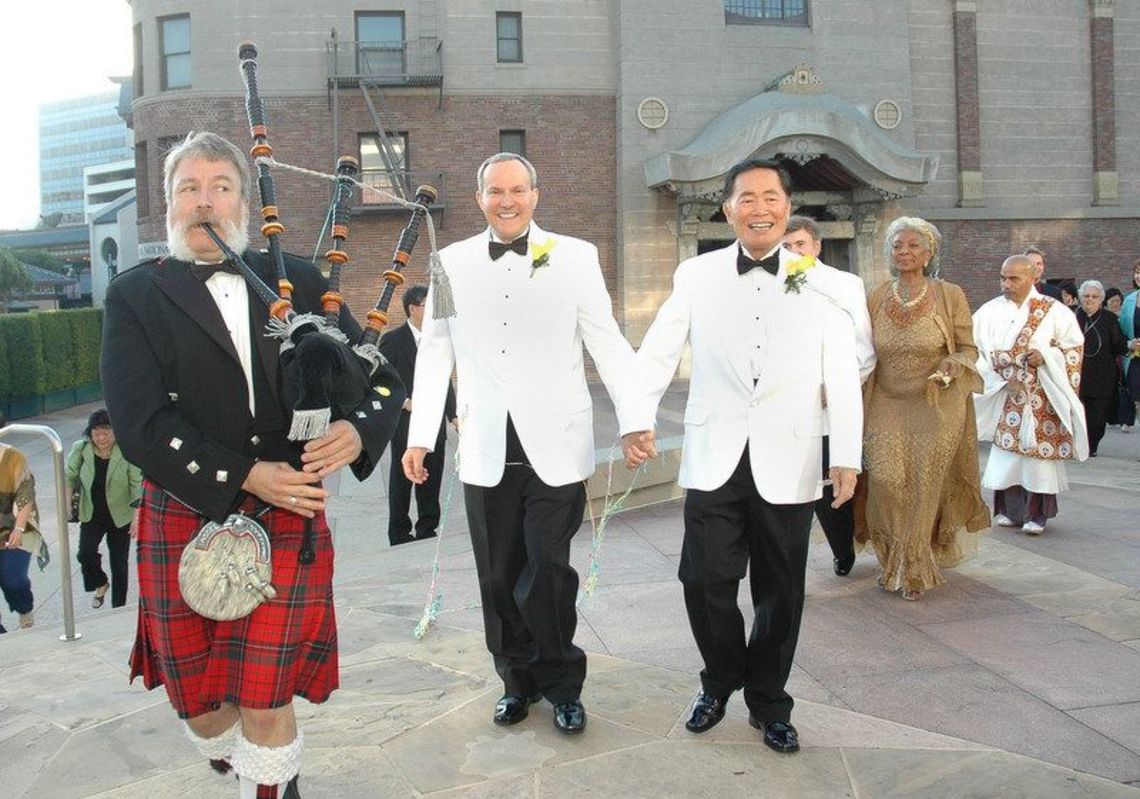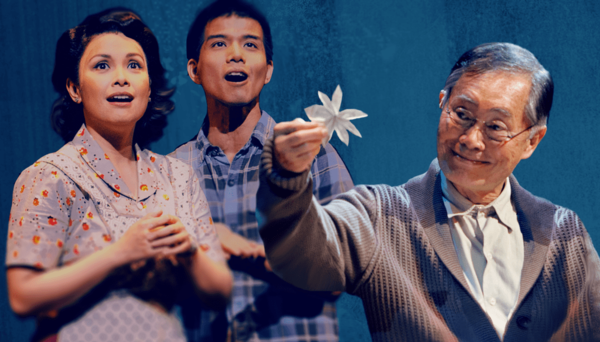
When I had just turned five years old, army soldiers serving my country, the United States of America, ordered my family out of our house at gun point. Without charge, without trial, without any kind of due process, we were summarily herded out of our home in Los Angeles and sent to live for weeks in a horse stable at a local race track, all because we happened to be of Japanese descent.
Subsequently, we were taken by train to a barbed wire prison camp in the swamps of Arkansas and, after a year, transferred to another camp in northern California. This was in reaction to the surprise bombing of Pearl Harbor in Hawaii, an act that plunged the United States into World War II.
The Japanese American internment lasted four years for many families, who lost everything they had ever built?their homes, their jobs, their businesses, their savings. When the war ended, each person was given a bus ticket and $25, and was expected to go home and start their livelihoods over.
The entire program was an affront to the notion of the rule of law and our Constitution, which was supposed to guarantee not only equal rights and equal treatment under the law, but due process, meaning our liberties were supposed to be safeguarded by fair judicial processes.
By interning over 120,000 of us, over two-thirds of whom were actual U.S. citizens, America betrayed its own values and undermined the legitimacy of its own laws. If it could happen to one group of people, who was to say whether it would happen again to another.
America is a people's democracy
My father once told me that America is a great country, but that it is a people’s democracy, meaning that it can be as great as the people in it, but also as fallible. In that instance, the people had been swept up by fear and ignorance, looking upon me and my family and tens of thousands of their fellow Americans as “others” undeserving of the same rights, privileges and freedoms that they enjoyed, simply because of our ethnicity.
I have since devoted my entire life to ensure that what happened to us then never happens again in America. Through the decades, America often has fallen short of its ideals, but it always keeps its eyes on them, making the story of America one where, bit by bit, the promise of equality, freedom and due process is ever-expanding and includes more people seeking more liberty.
When World War II ended and we went back to Los Angeles, the United States was still a very racist and very racially segregated country. For example, in many places, including my own state of California, ethnic minorities were not permitted to marry white Americans. At the time, this was considered wholly natural and non-controversial. Indeed, even many ethnic minorities were basically resigned to the fact that they would and should keep themselves separate from the white majority and not intermarry.
Moreover, the law seemed to be facially neutral: It prevented anyone from marrying someone of another race, so it was argued that this did not violate the principle of equal protection and equal application of the law.
Of course, the real reason behind such laws was to keep minorities down and give a clear signal that they did not have the right to marry into the majority white population. Defenders of the law often cited the Bible, claiming that if God had intended for the races to intermingle, He would have placed them together instead of separating them by oceans.
The legislatures who passed and defended such laws further pointed out that they were maintaining them for the good of the children, as it was demonstrably true that the offspring of such marriages faced discrimination and ridicule, so we might as well spare them from such a future.
But in 1967, during the huge upheavals of the Civil Rights Movement led by Dr. Martin Luther King, Jr., the Supreme Court of the United States struck down all such laws.
It said at least two important things in doing so. First, it found that marriage itself, as the deepest expression of love between two people, was an integral part of liberty and freedom, and that therefore it was a fundamental right which the government could not strip away without compelling reasons.
Second, the Supreme Court said that the presumed prejudice and animus of other people towards the love of an interracial couple, including towards the offspring of such a couple, could not serve as a legitimate basis on which to build laws to keep someone from marrying the person they love. The Court acknowledged that these laws were deeply rooted in discrimination and motivated by bigotry towards minorities.

Today, very few Americans would even bat an eye if they met an interracial couple who were legally married. In fact, it is so commonplace in places like California that whole generations of children are being born with mixed ancestry, including African, Asian, European, Latin and Native American. Children rattle off their ancestry with pride, with the more diverse children often envied for their more colorful ethnic heritage and make-up.
Equality and liberty to everyone
I know that times have changed dramatically because when I got married in 2008 to a white American, no one even seemed to notice that we were of different races. Instead, what was groundbreaking, and what challenged again the notion of an expanding scope for equality and freedom in the United States, was that my spouse was a man, not a woman.
LGBT rights and the fight for marriage equality is a continuation of a long struggle to bring the promise of equality and liberty to everyone, no matter what their race, religion, gender or sexual orientation. In the case of marriage equality, the pendulum swung quite quickly.
As late as 1996, Congress had passed the Defense of Marriage Act which refused federal recognition of any marriage performed in a state, meaning that while certain more open and liberal states were granting marriage licenses to people like me and my husband Brad, the U.S. government would not view us as married. This had profound implications across many areas, including taxes, inheritance, and hospital visitation rights.
But LGBT couples pressed their case, arguing that if marriage is a fundamental right, and that all Americans should have the right to marry the person they love, the equal application of American law cannot disregard an entire portion of the population, in this case gay and lesbian Americans.
That argument, and that fight, took us 17 years to successfully argue before the U.S. Supreme Court once again took action, striking down the Defense of Marriage Act as unconstitutional in 2013. And just this year, it went one final step further, holding that no state could deny a couple a marriage license solely on the basis of the spouse’s sexual orientation.
From the America when the government could place 120,000 of us in a camp because we happened to look like the people who bombed Pearl Harbor, to the America today that says not only that all people are entitled to equality and freedom regardless not only of race but of sexual orientation, we indeed have come far.
This is part of the genius that the American experiment, one which once permitted whites to own blacks as slaves but now has elected its first black President, Barack Obama, who is the son of an interracial marriage. It is an experiment that I have experienced first-hand through the nearly eight decades of my life, and I am proud to have not only seen things change but to have helped make that change happen.
America is the country that locked me up for four years, but it is also the country that has now embraced and recognized the love that Brad and I share for each other. The American experiment continues today with the question of immigrants, the disabled, and transgender people, and their place among us and within the great tapestry of this country.

